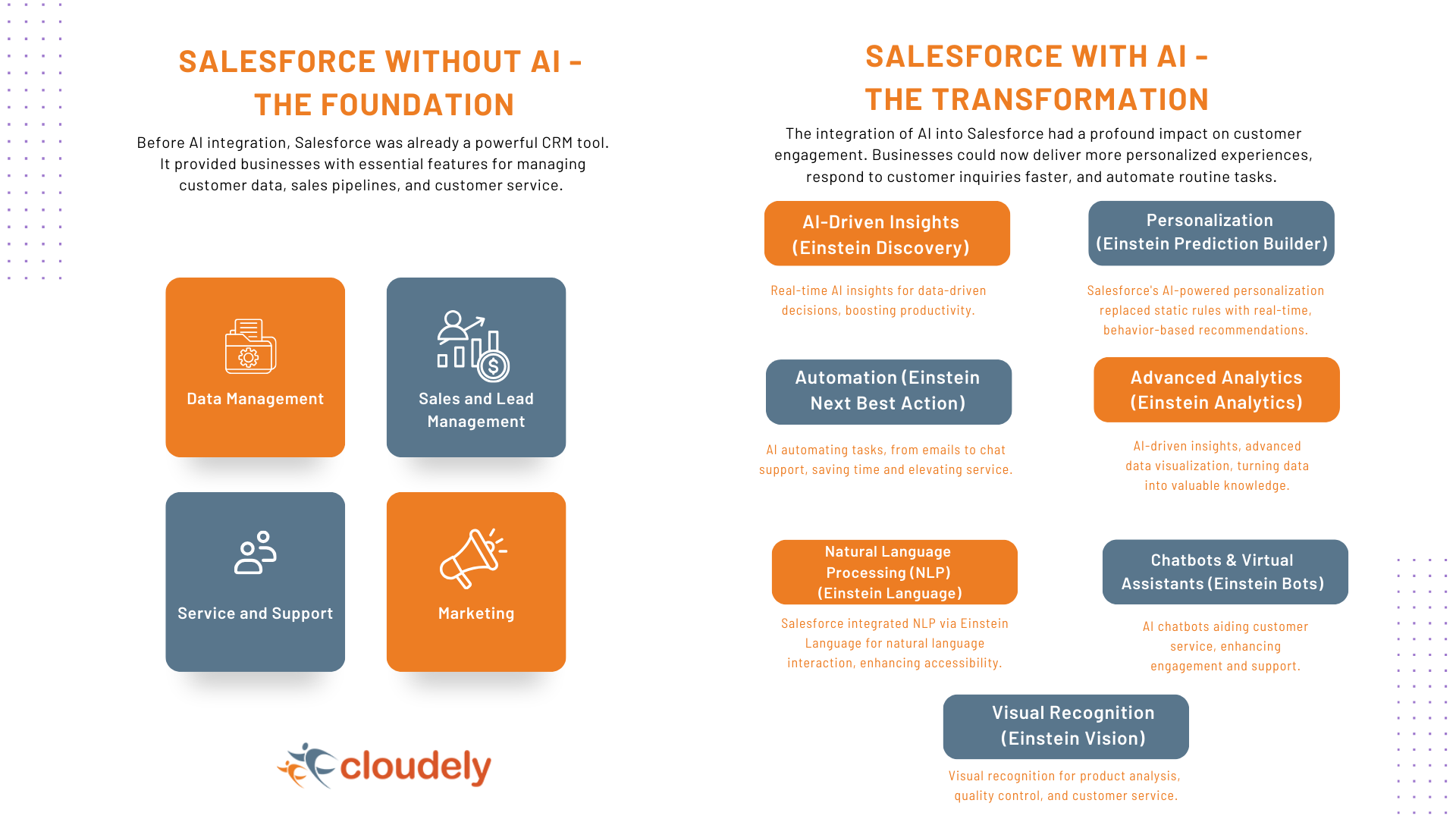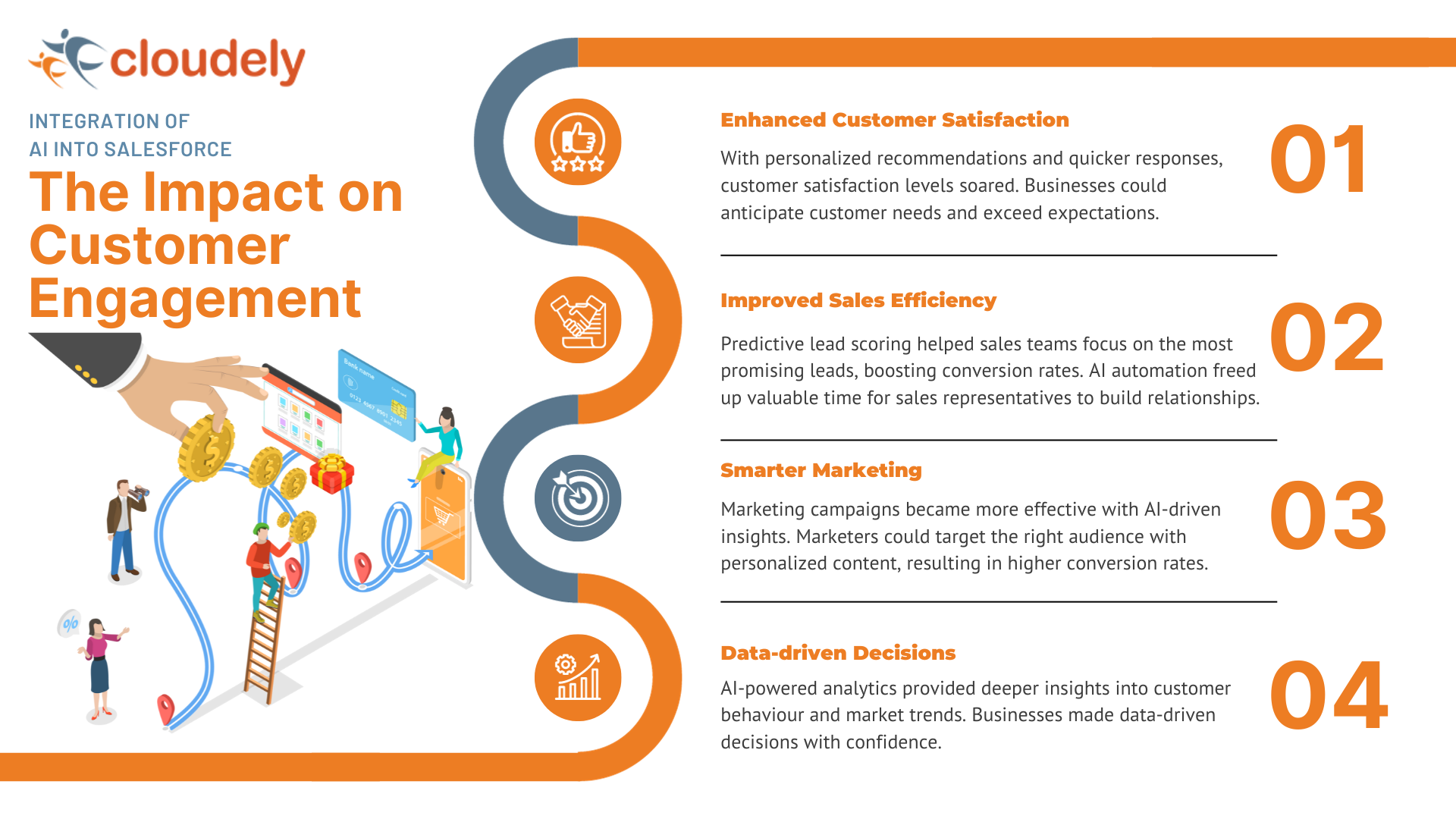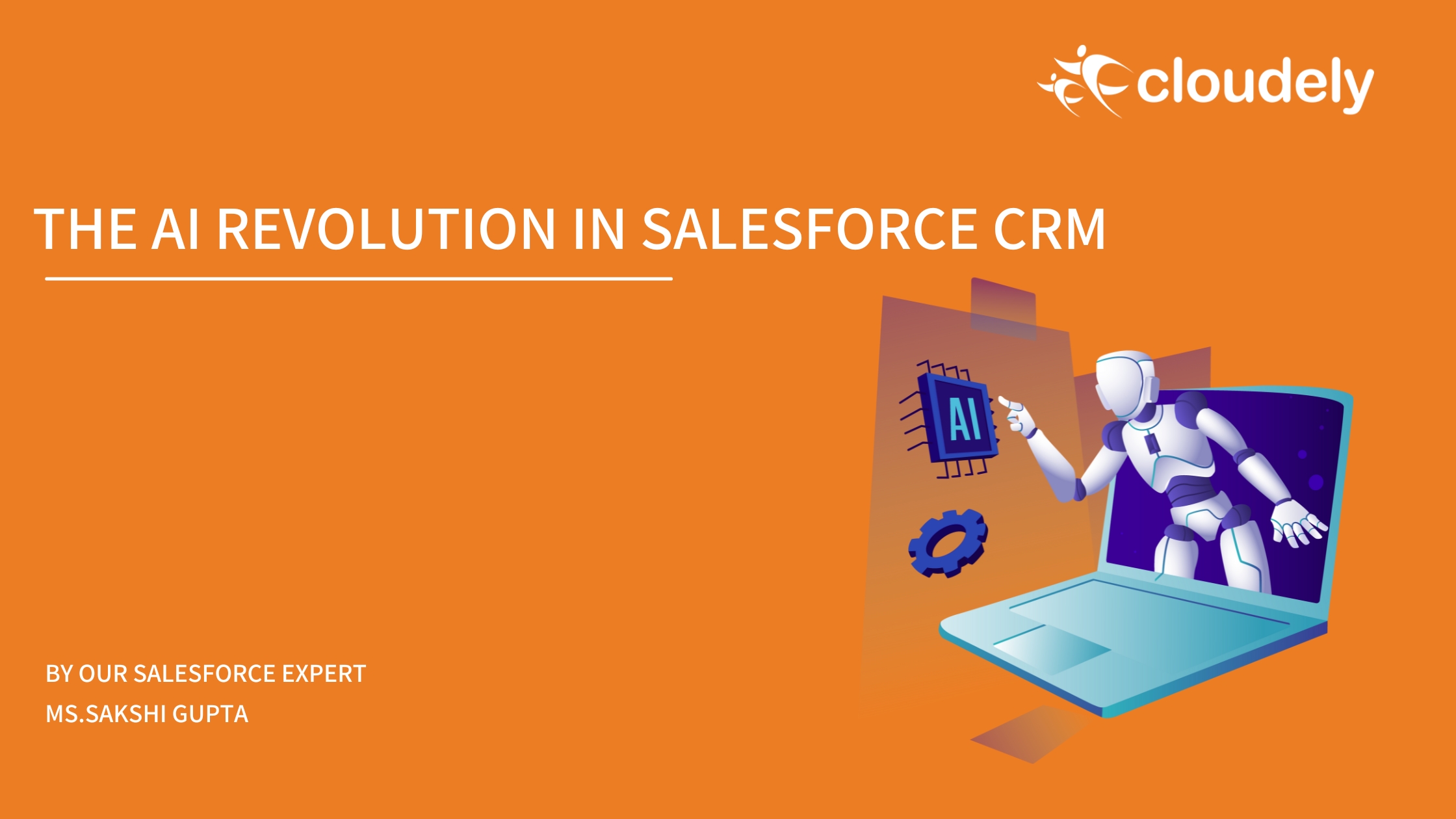In the ever-evolving landscape of customer relationship management (CRM), Salesforce stands out as a pioneer. Over the years, it has continually adapted to meet the changing needs of businesses and their customers. One of the most significant advancements in Salesforce’s journey has been the integration of Artificial Intelligence (AI). Let’s explore how Salesforce has evolved, comparing it with and without AI, and delve into the specific AI-powered features that have transformed it.
Salesforce Without AI: The Foundation
Before AI integration, Salesforce was already a powerful CRM tool. It provided businesses with essential features for managing customer data, sales pipelines, and customer service. Here are some key aspects of Salesforce without AI:
- Data Management
Salesforce allows businesses to store and manage customer data effectively. Users could input, update, and access customer information, ensuring data accuracy.
- Sales and Lead Management
It enabled sales teams to track leads, opportunities, and deals, streamlining the sales process. Lead scoring was based on user-defined criteria and historical data.
- Service and Support
Salesforce offered customer service features, including case management, knowledge base, and support ticketing systems.
- Marketing
Basic marketing automation capabilities allowed users to create email campaigns, manage leads, and track customer interactions.
While these features were valuable, they relied on manual data entry and user-defined rules. As customer data grew more complex and businesses sought to deliver personalized experiences, the need for AI became apparent.

Salesforce With AI: The Transformation
With the introduction of Salesforce Einstein, the CRM landscape underwent a significant transformation. Salesforce integrated AI capabilities into its suite of products, enhancing the user experience and opening new possibilities for customer engagement. Here’s how Salesforce evolved with AI, including specific AI-powered features:
- AI-Driven Insights (Einstein Discovery)
Salesforce Einstein Discovery brought AI-driven insights to the forefront. Machine learning models analyze data in real time, providing predictive and prescriptive insights. This empowered users to make data-informed decisions, increasing efficiency and productivity.
- Personalization (Einstein Prediction Builder)
AI-enabled dynamic personalization became possible. By analyzing customer behavior and preferences, Salesforce could suggest personalized product recommendations, content, and marketing strategies in real time. The days of static rule-based personalization were over.
- Automation (Einstein Next Best Action)
Einstein Next Best Action offered AI-powered automation. It streamlined repetitive tasks and processes, automating follow-up emails, triggering actions based on data patterns, and even providing chatbot support. This automation saved time and improved customer service.
- Advanced Analytics (Einstein Analytics)
Salesforce Einstein Analytics provided advanced data visualization and reporting tools with AI-driven insights. Users could derive actionable insights from their data, transforming raw data into valuable knowledge.
- Natural Language Processing (NLP) (Einstein Language)
Salesforce integrated NLP capabilities through Einstein Language. This allowed users to interact with the system using natural language queries, improving user experience and accessibility.
- Chatbots and Virtual Assistants (Einstein Bots)
AI-powered chatbots and virtual assistants, known as Einstein Bots, became part of Salesforce’s offerings. They provided automated support, answered queries, and assisted in tasks, enhancing customer service and engagement.
- Visual Recognition (Einstein Vision)
Einstein Vision added visual recognition capabilities. It could analyze images and videos, making it valuable for tasks such as product recognition, quality control, and even customer service interactions involving visual content.
The Impact on Customer Engagement
The integration of AI into Salesforce had a profound impact on customer engagement. Businesses could now deliver more personalized experiences, respond to customer inquiries faster, and automate routine tasks. Here are some notable changes:
- Enhanced Customer Satisfaction
With personalized recommendations and quicker responses, customer satisfaction levels soared. Businesses could anticipate customer needs and exceed expectations.
- Improved Sales Efficiency
Predictive lead scoring helped sales teams focus on the most promising leads, boosting conversion rates. AI automation freed up valuable time for sales representatives to build relationships.
- Smarter Marketing
Marketing campaigns became more effective with AI-driven insights. Marketers could target the right audience with personalized content, resulting in higher conversion rates.
- Data-Driven Decisions
AI-powered analytics provided deeper insights into customer behavior and market trends. Businesses made data-driven decisions with confidence.

Conclusion: The Power of Salesforce AI
Salesforce’s journey from a traditional CRM to an AI-powered platform demonstrates its commitment to innovation and customer success. With AI, Salesforce has enabled businesses to evolve their customer engagement strategies, delivering more personalized, efficient, and data-driven experiences. Whether it’s automating tasks, predicting customer behaviour, or providing real-time insights, AI has truly transformed Salesforce into a smart CRM for the modern era.
As AI continues to advance, we can expect Salesforce to remain at the forefront of CRM innovation, driving better outcomes for businesses and their customers. The combination of Salesforce’s robust CRM capabilities and AI-powered features makes it a formidable tool for businesses seeking to create meaningful and lasting customer relationships in today’s digital age.

